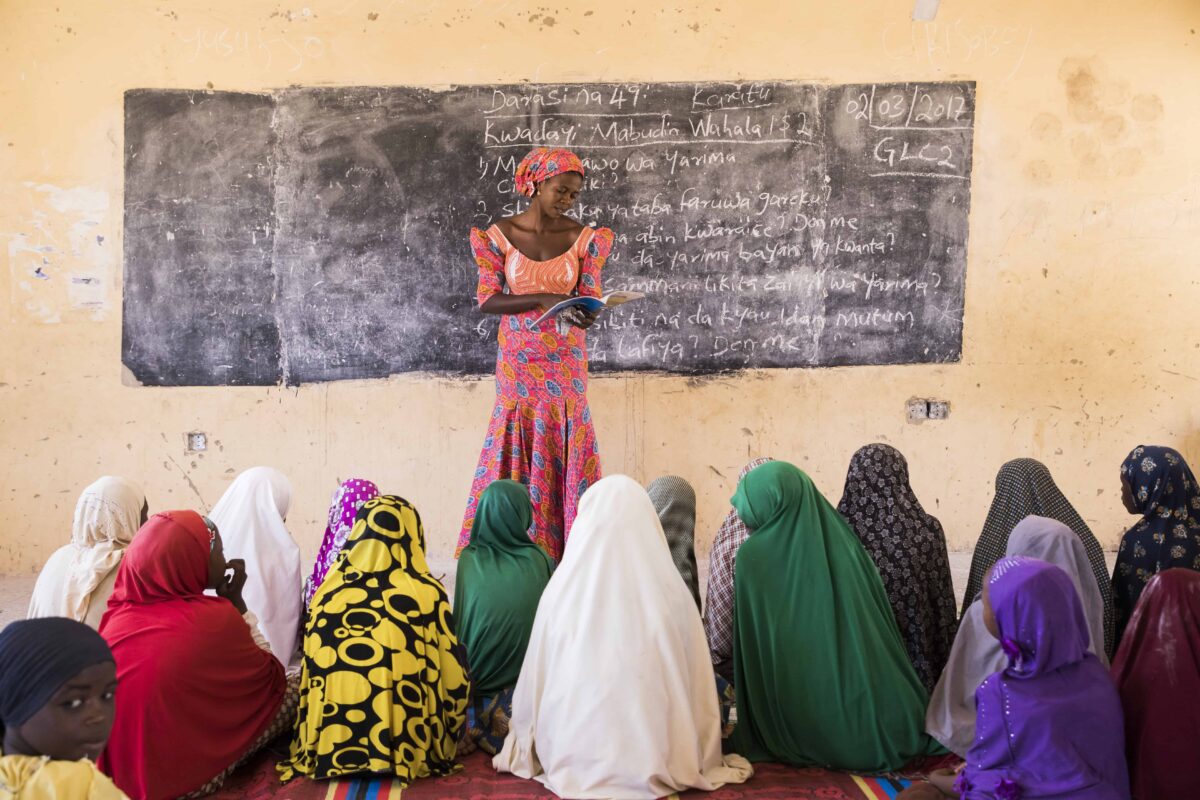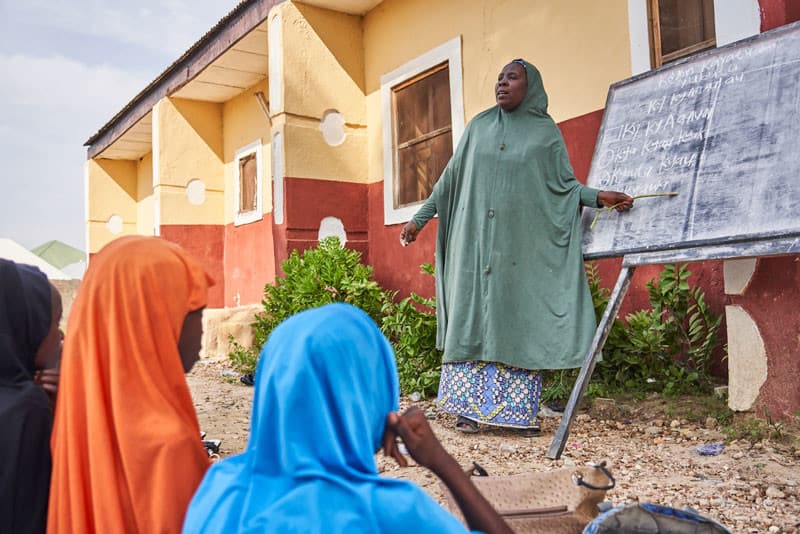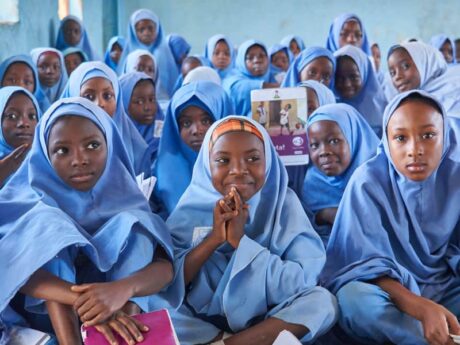Abuja, NigeriaExperts, advocates and the Nigerian government have set a new agenda to improve primary education in two Northern states, including state officials taking greater ownership of the activities.
During a five-day meeting in August hosted by the Initiative d'éducation du Nord Plus (NON Plus), education experts and other participants from Bauchi and Sokoto states designed a work plan for the early grade reading project’s fourth year and discussed ways to improve and promote education in Nigeria. They were joined by experts from the United States.
Based on the plan, an additional 98,600 children will learn literacy and math skills this year in formal schools and learning centers opened in communities in need of educational interventions, bringing the total number of program beneficiaries to 600,000. State governments will assume more financial responsibilities for providing textbooks, training teachers and supporting schools to monitor teaching and learning effectively.
The NEI Plus will also continue building capacity of governments to implement education policies and standardize reading as a subject in schools.
Financé par le NOUS. Agence de Développement International, NON Plus is being implemented in formal and non-formal schools in Nigeria’s Sokoto and Bauchi states, dans le but d'améliorer les compétences en lecture pendant plus de 1.4 millions d'élèves du primaire. The five-year project is implemented by Creative Associates International
Celebrating education gains
In his opening address at the planning meeting, representative of the Minister of Education, H.E. Adamu Adamu, said the project has helped to transform primary education in Bauchi and Sokoto states.
“In the last three years, the Initiative and the Ministry of Education have worked together to improve education in Bauchi and Sokoto states and we want to continue to sustain these gains," il a fait remarquer.
He added that through the NEI Plus’s technical support, the Ministry of Education is building a new National Reading Framework, which it plans to scale up nationwide.
NEI Plus has already recorded gains in early grade reading in Bauchi and Sokoto states. A midline early grade reading assessment conducted by the project indicates improvement in most of the key reading skills for Hausa and English especially in second and third grades. Through the NEI Plus, jusqu'à 190,000 children in informal schools have gained literacy and numeracy skills that enabled 90 percent to mainstream into formal schools.
Preparing for continued progress
Aller de l'avant, the government will take on an even larger ownership role in the project to sustain the gains and continue to improve education.
“We want Nigeria to graduate from USAID assistance, et dans les États de Bauchi et de Sokoto, les gouvernements doivent démontrer leur appropriation en soutenant financièrement le projet.,» a déclaré Olawale Samuel, Spécialiste en gestion de programmes éducatifs pour USAID Nigéria.
À ce jour, L'État de Sokoto a obtenu 30 pour cent du financement nécessaire pour soutenir le programme tandis que l'État de Bauchi a consacré $17,000 sous forme d'allocation mensuelle à 20 Les autorités éducatives du gouvernement local en soutien au suivi et à la supervision des écoles.
La quatrième année du projet porte le thème, «L'Année des territoires et des communautés de gouvernement local," alors que les gouvernements des États s'approprient désormais pleinement le projet.
Bauchi a également acheté 1,000 tablettes pour suivre les progrès, en plus de mettre en place un groupe de travail de supervision pour surveiller toutes les écoles du projet.
Alors que le projet entre dans sa quatrième année, Le personnel du projet et ses partenaires gouvernementaux et de la société civile travaillent pour garantir l'inclusion du genre et mieux atteindre les adolescents apprenants.. Le directeur du projet de l’Initiative, Semere Solomon, s’est engagé à accroître la représentation féminine parmi les facilitateurs d’apprentissage de 20 pour cent à 35 pour cent. En outre, le projet a formé trois comités pour aborder les questions et défis spécifiques liés au genre, durabilité et intégration des apprenants.
Dans toutes les activités, le rôle des autorités gouvernementales locales des États sera essentiel pour la durabilité et l’expansion du programme de lecture préscolaire de l’Initiative, a déclaré Salomon dans ses remarques finales.
« Nous félicitons les États de Bauchi et de Sokoto d'avoir pris en charge les interventions clés du projet en matière de lecture et d'éducation non formelle.. La quatrième année est cruciale pour nous et nous devons travailler ensemble pour réaliser des progrès au sein des gouvernements locaux et des communautés.," il a dit.



